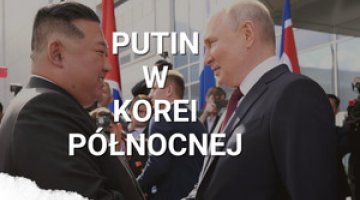Cooperation – with limits. Putin in Uzbekistan
On 26–28 May, Uzbekistan’s president Shavkat Mirziyoyev received Vladimir Putin, who was on a state visit to what is the most populous and (next to Kazakhstan) the most important country in Central Asia. The Russian delegation included more than 330 people, including ministers, governors and heads of state-owned enterprises. In a joint statement, the presidents stressed the “proximity or high compatibility of the positions” held by Tashkent and Moscow on international affairs, and proclaimed the development of their mutual relations based on respect for sovereignty and territorial integrity. A number of bilateral agreements were concluded, including the construction of a low-power nuclear power plant in Uzbekistan (there are also plans for Tashkent to increase imports of Russian gas). Mirziyoyev and Putin also set up an Uzbek-Russian investment platform to act as a fund (worth $500 million) to support projects in Uzbekistan. The visit took place in a demonstrably good atmosphere.
Commentary
- Since Mirziyoyev took office in 2016. Uzbekistan has been dynamically developing its economic and political cooperation with Russia. However, it is not a member of the Collective Security Treaty Organisation or the Eurasian Economic Union. The country’s relations with the Russian Federation are balanced by cooperation with the PRC, and to some extent with the EU. Tashkent adopted a restrained stance in the face of Russia’s full-scale invasion of Ukraine, and has avoided making any unequivocally pro-Russian or pro-Ukrainian declarations. The war in Ukraine has allowed Uzbekistan to significantly increase trade with Russia on favourable terms, but it has also expanded its economic ties with China and the EU.
- Despite its spectacular setting and symbolic nature, the Russian leader’s visit (the second at state level since his ‘re-election’) did not bring about any real breakthrough in bilateral relations. In political terms, the declaration of ‘proximity or high compatibility of the positions’ on international issues is a convenient understatement for both sides, in the context of the Russian Federation’s invasion of Ukraine. This form of words allows both parties to avoid referring explicitly to the topic of the war, as was the case during the visit; but it also leaves room for their propaganda apparatuses to present the event in a manner consistent with their political lines. The same is true of the bilateral declaration of respect for territorial integrity. It was important for Tashkent to obtain this guarantee in relation to Uzbekistan’s fears of Russian revisionism; at the same time it was important for Moscow because it gives its propaganda apparatus an opportunity to interpret the gesture as tacit acceptance of the annexation of Ukrainian territories. In fact, however, Uzbekistan has emphasised that it respects the territorial integrity of the Russian Federation within its internationally recognised borders (that is, without the territories Russia has occupied in Ukraine over the last decade) – something which Putin’s visit did not change.
- The main field of Uzbek-Russian cooperation remains the economy. During the visit, the 2018 intergovernmental agreement on cooperation to construct a nuclear power plant in Uzbekistan was updated. On this basis, Rosatom and Uzatom’s subsidiaries concluded a new agreement: to construct a low-capacity nuclear power plant (consisting of six reactors with a total capacity of 330 MW) in the east of the country. This plan marks a reduction in the concept from 2018, according to which a ‘large’ power plant of 2.4 GW was to be built. The reason for the revision was most likely the attitude of the Uzbek side, which since last year had publicly indicated that due to the costs it was leaning towards building a smaller complex.
- The increase in Uzbek imports of Russian gas, as announced during the visit, will mutually benefit both countries. These shipments began last year (see ‘Russian gas in Central Asia: a plan to deepen dependence’), and their volume is said to have risen from the currently contracted level of 2.8 bcm per year to 3.8 bcm in 2024, and up to as much as 11 bcm in 2025. This will require an update to the two-year agreement which was concluded in June 2023. Despite being a significant producer of natural gas itself, Uzbekistan needs more of it due to declining local production combined with the dynamic growth of its economy (gas makes up about 80% of Uzbekistan’s energy mix). The country is also moving away from its role as a gas exporter. Russia in turn is looking for more markets, including those which offer access to transport routes to China; it is also seeking to gain influence over Uzbekistan’s critical infrastructure. However this project, like that of the ‘small’ nuclear power plant, will be both time- and capital-intensive, which makes room for its renegotiation in the future. Its work will probably be accelerated by the establishment of a joint investment platform, which will mainly (to the tune of $400 million) be fuelled by Russian funds.




